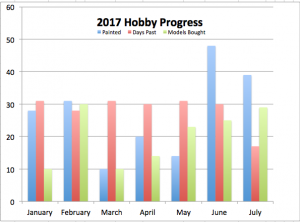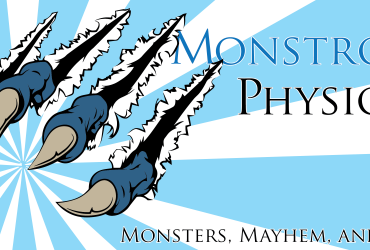I’m taking a bit of a break from world-building this week to stew on some ideas. So instead I thought that I’d bring forward a different collection of thoughts that I’ve had on the back burner.
It should come as little surprise to the followers of this blog that I’ve got a soft spot in my heart for miniature wargaming. There’s something about pushing painted toy soldiers around a table that simulates full-scale conflicts… It draws me into that narrative, that world. It’s cinematic and captivating. But, as any dedicated hobby hero will tell you, reaching the level of complete and fully-painted army takes a lot of time and effort. While the act of assembling and painting miniatures is enjoyable in its own right, it’s still a labor intensive chore when compared to the main event – actually getting to play with the toy soldiers. Seeing them on a table, squared off against an opposing force and acting out a warzone in miniature. I’ve actually got a whole hobby pledge where I’m trying to fully paint at least 1 miniature a day for the entire year. Because fully-painted armies are awesome.
It’s a similar deal with preparing for an RPG. As a GM, you’ve got a preconceived notion of how your game is going to run. If you wrote the adventure, you’ve got an idea – a story arc or particular series of events – that you want to see brought to life. You’ve got an adventure to run and a tale to tell. If you’re running a published adventure, you’re still following a narrative but you’ve likely put your own twist on it. Gathered the appropriate components, committed encounters to memory, massaged out the details to fit your group.
Let’s make no bones about it. That’s all work. It might be enjoyable work but it’s all work necessary for you to run your game. Some GMs might prep more or less than others. But for a truly immersive experience, I find that I have the most success when I dot my i’s and cross my t’s. That kind of work isn’t always easy. It can be hard to buckle down and do the work beforehand when so easy to just do the bare minimum required and coast along. So I thought I might jot down a few ideas to help keep you motivated to put in the prep work so that you can get the most out of your gaming sessions.
Identify Tasks and Timelines
Figure out what needs to be done and when it needs to be done by. Make a list. Create an outline. Order your tasks by what’s most urgent. Further divide the most urgent tasks by how easy they are to complete. Take on the easiest and just get it done. It might be looking up a spell list so you can finish statting up that NPC caster. Or it might be looking up that one weird rule interaction from last session. Or finding that miniature to represent the Big Bad for the boss fight next session. Get the small stuff out of the way so you can continue planning for the road ahead.
Set a Schedule – and Keep It!
Organizational skills are a key part of maintaining an efficient workflow. In this case, it means less time spent wondering what should be done and more time just doing it. One of the primary tasks in this regard is simply setting aside time in your busy life to actually do the work you need to do. Maybe evenings from 7-8pm are good for you. So every evening you set aside an hour to work on monsters, or write an encounter, or outline a story arc. Also, just as importantly, keep to that schedule. If you can’t set something daily, maybe make it ever couple of days. Or maybe once a week if you’re super busy. Adjust your hobby-work schedule as you see fit, but make sure you’re consistent. It’s like exercise, it only works if you do it!
Hold Yourself Accountable
The only one who can keep you on task is you. When the hobby-work starts feeling like work-work remind yourself why you’re doing all of it. Do it for your game, do it for your players, but ultimately do it for yourself. The effort you put into your game will end up paying off tenfold. But again, only if you actually go and do it.
Remember that painting pledge I mentioned at the beginning of the article? To hold myself accountable, I’ve kept track of the number of models I’ve painted each month. I even included a models bought just to keep myself honest. Overall, if I paint at least 1 model a day *and* paint more models than I’ve bought, I’ll have chipped at least a little bit into my backlog.
The days past in the graph is basically just a visual reference for achievement. So long as the blue bar is taller and the green bar shorter than the red bar, I’m doing well.
So that’s it for today. There’s probably a broader post about hobby organization and time management buried somewhere in the jumble of my backlog. But this is what was on the surface. How do you organize your time? Is there anything you wish you’d done more to prepare for your games? Let me know in the comments section below!







